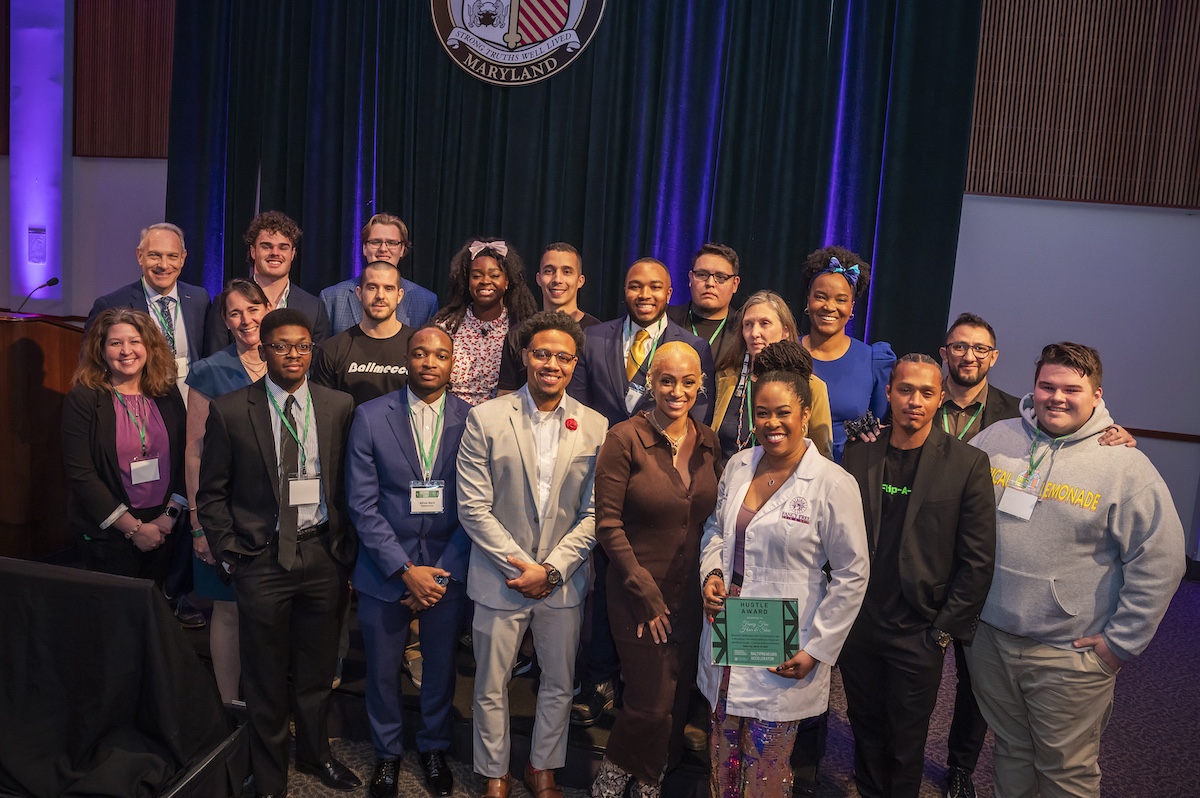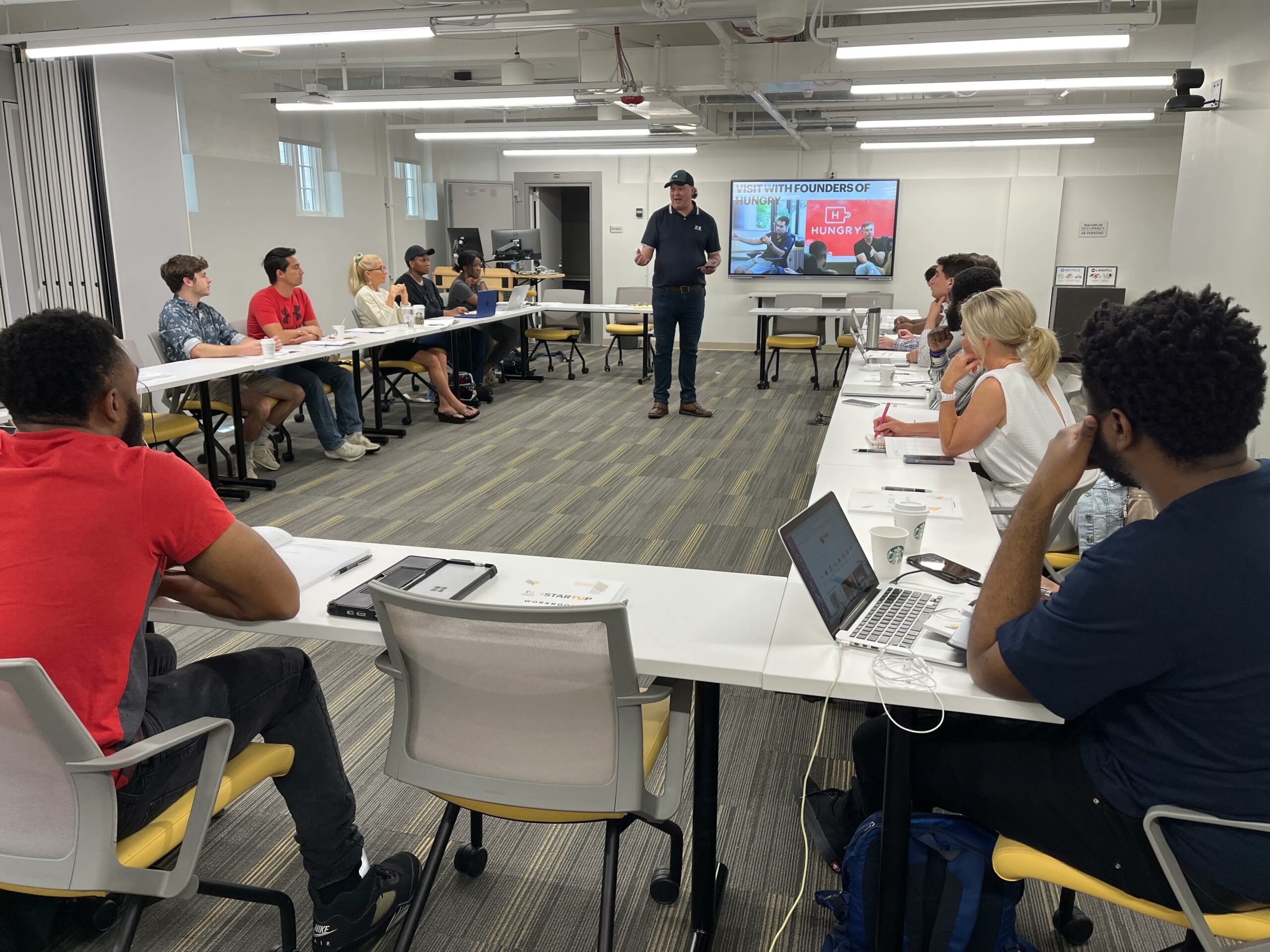At the start of 2022, a group of startup ecosystem leaders in Baltimore wanted to find a way to elevate student entrepreneurship in the region with a low barrier to entry.
That aim materialized today with the new Pava LaPere Innovation Acceleration Grant Program, which will allocate $50,000 to each of nine student-founded businesses in the Baltimore metropolitan statistical area and host a showcase early next year. The pilot is made possible by $500,000 from the State of Maryland and named after the late cofounder of the local startup EcoMap Technologies, who helped establish much of Johns Hopkins University’s student entrepreneurship infrastructure before her 2023 death.
The vision for the program evolved over a few years, per Josh Ambrose, the director at the Johns Hopkins-affiliated Pava Center and one of the program’s core leaders. But the overall mission has stayed the same, he said.
“We want to find young startups that are committed to building this,” Ambrose told Technical.ly. “And we want to do everything we can to celebrate their success here in Maryland, and especially in Baltimore.”
Ambrose emphasized that this is not an accelerator program or a pitch competition. Instead, student ventures from across universities and community colleges in the region can now submit applications to their individual schools for a chance to eventually participate in a student showcase this coming February. Each will receive $50,000 of non-dilutive funding, plus coaching ahead of the showcase. The additional $50,000 from the state allocation will go toward running the event, Ambrose said.
The funds come directly from the Pava LaPere Innovation Act and are administered by Maryland-founded TEDCO and ecosystem nonprofit UpSurge Baltimore, he added.

This program was created by several entities working together, including the pre-accelerator program Innovators of Progress. Markus Proctor, the executive director, said this collaboration is intentional: Not one stakeholder can “holistically” loop in student entrepreneurs to the broader ecosystem.
“It’s not just a money problem (though money helps), it’s being there to support founders when they have to navigate big and small decisions,” Proctor wrote to Technical.ly. “Bringing together this many organizations not only demonstrates commitment to equitable access, but ensures there are fewer cracks for founders to fall through.”
Entrepreneurship arms at universities in Baltimore have risen in popularity over the last decade, with nearly all of the area’s public and private schools having such departments. Now, it’s important these higher education institutions interact and work together, said Margaret Roth, a principal at Squadra Ventures and one of the new program’s founding organizers.
“Having the entrepreneurs connected across their school boundaries and borders, and really getting to know each other and have that shared entrepreneurial journey in Maryland and Baltimore, is a next-level connectivity,” Roth told Technical.ly.
How the application process works
Representatives from each school will participate in the grant program’s steering committee, said Robbin Lee, UpSurge’s director of partnerships and mobilization. This group consists of professors and other relevant leaders at Baltimore region colleges, including Onyema Osuagwu, the assistant director at Morgan State University’s Cybersecurity Assurance and Policy Center; and Wendy Bolger, the director of Loyola University Maryland’s Center for Innovation and Entrepreneurship.
Up to four student teams from each of the 19 participating colleges can be considered for the showcase, with nearly 80 groups eligible for candidacy.
“There are going to be some schools that have a ton more, and then there are some schools that may really have to work really hard to find four,” Lee said. “So that way, [the model] kind of helps to level the playing field.”
Applications will be open to students for a few weeks, with representatives submitting official nominations by the end of November. The plan is to announce the nine finalists in early January, ahead of the showcase in mid-February.
In addition, students who apply but are not selected might have a chance to participate in a related student expo, according to Lee.

At least one of the students on the team must be enrolled in a college or university in the area at the time of the application. The program also currently requires the team to be operating a for-profit venture that is incorporated as a business within 60 days of applying, Lee said. It also must be a tech-enabled business, but that can be open to interpretation, she added.
Bridging gaps in funding, opportunity and the community
Organizers noted there are a few ways this grant program is set apart from others in the higher education system in the area.
One reason is the sheer amount of capital, said Lindsay Ryan, the executive director of economic development for the University System of Maryland (USM). She also runs the USM Launch Fund, a funding arm for students, faculty employees and alumni. Granting student teams $50,000 is rare, she noted.
“I do think it speaks to the seriousness with which we are taking these student ventures,” Ryan told Technical.ly.
This program also bridges the gap between a student being enrolled in a university and navigating the entrepreneurship world post-grad. A program like this, with robust capital and resources, can effectively make a student a participating professional in the community, Ryan said.
The cash being non-dilutive is also intentional, Squadra Ventures’ Roth noted. It attempts to foster community, not competitiveness, within the showcase, as well as to ensure a low barrier to entry.
Roth also noted how scarce venture capital is at the moment. The Baltimore region had an incredibly slow Q3 — the area’s firms only raised $53.4 million across nine deals between July and September. That’s more than an 80% decrease in capital compared to Q2 of this year.
With the capital and the coaching, the organizers seek to help students build out ideas in a supportive environment, Roth stressed.
“There’re many wonderful things our students can do,” Roth said. “But how do we really not just bring the ‘starting something’ mindset, but how do we bring the ‘turning it into a business and building something big’ mindset alongside that?”







